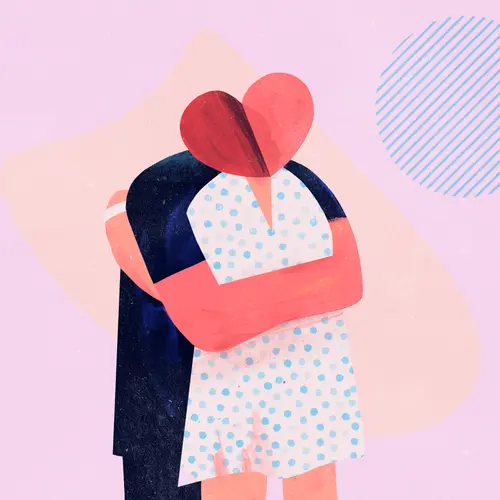Women between the ages of 55 and 63 are most likely to get ovarian cancer. But it can happen in younger women, too. About a third of women who get ovarian cancer are younger than 55. About 1 in 10 ovarian cancers are in women younger than 45.
Younger women with ovarian cancer may have unique challenges. Your career, your children, and future family planning may all be major concerns. Ovarian cancer can have an impact on each of these. It might reassure you to know that younger women with the most common type of ovarian cancer do better in the long run than older women with the same diagnosis.
Why Ovarian Cancer Happens
Ovarian cancer is most common in older women after menopause. Most of the time, it’s not clear why a particular cancer happens. But some things that can make cancer more likely.
In addition to age, risk factors for ovarian cancer include:
- Obesity or being overweight
- Smoking
- Having children later or not having children
- Having had breast cancer
- Family history of ovarian cancer, breast cancer, or colorectal cancer
- Having an inherited cancer syndrome
About 1 in 4 ovarian cancers happen in people who have gene variants that make certain cancers more likely. You inherit these genes from one or both of your parents. The most common genes related to ovarian cancer are BRCA1 and BRCA2. Variants in several other genes can also increase ovarian cancer risk, too. Talk to your doctor if you think your genetics or family history might raise your risk for ovarian cancer.
Researchers once suspected that some fertility treatments could raise risk for ovarian cancer. But new evidence, including a study of more than 30,000 women in the Netherlands, didn’t show any increase in ovarian cancer after these treatments.
Some women in the Netherland study did more often get a type of ovarian cancer called borderline ovarian tumors. But researchers say those probably happen because of other reasons. Fertility treatment is most likely not the cause. This type of ovarian cancer is usually easy to treat.
Treatment for Younger Women With Ovarian Cancer
Ovarian cancer treatment is based on ovarian cancer type, stage, and any special considerations you may have. Most of the time, treatment involves surgery. You might need other treatments as well, depending on how advanced the cancer is.
Most ovarian cancers begin on the outside surface of the ovaries. You call these epithelial cancers. But they are rare in younger women. Treatment usually starts with surgery to remove the tumor. Your doctor may recommend a hysterectomy to remove your uterus, both ovaries and your fallopian tubes. That depends on the stage and whether the cancer is in both ovaries. Unless the cancer is still at a very early stage, you will likely also have chemotherapy.
Younger women more often get other types of ovarian cancers that may need a different treatment. These include:
- Borderline tumors. These tumors usually don’t grow quickly. Doctors often treat them with surgery only.
- Germ cell tumors. These tumors start in egg cells inside an ovary. Your doctor may recommend removing some or all of the affected ovary. Treatment usually includes chemotherapy.
- Granulosa and Sertoli-Leydig cell tumors or sex cord-stromal tumors. This type develops in the tissue that supports and connects the ovaries. It is very rare. Doctors usually find these tumors early and remove them with surgery. Sometimes you need chemotherapy, too.
Ovarian Cancer and Your Fertility
If you want to have children in the future, your doctor can consider this in your treatment plan. Depending on the cancer stage and type, they may be able to remove only one ovary and fallopian tube. For some types of ovarian cancer or early-stage ones, studies show it is safe for younger women to choose fertility-sparing surgery. But first, your doctors will need to make sure the cancer hasn’t spread.
If fertility-sparing surgery isn’t an option, you might consider freezing your eggs or embryos before you start treatment. This can make it possible to have children later. Even if you have to have your uterus removed, you could have a biological child with a surrogate.
Some types of chemotherapy can trigger early menopause in some women. This would be another reason to freeze eggs or embryos before treatment.
Your cancer doctor and specialists in reproductive medicine can explain your options.
Other Considerations for Younger Women With Ovarian Cancer
If you have ovarian cancer at a younger age, you will have many other things to consider, including the impact on your finances and your career. A social worker on your care team can point you toward financial assistance if you need it. They can also talk to you about your rights at work. If you have young children, you’ll need to consider them, too.
Experts recommend that you tell your children what’s going on in simple terms. Focus only on what they need to know. By talking to them, you will make it easier for them to talk to you and get the help they need to cope with your diagnosis. You may want to seek counseling for yourself and other members of your family, including your children.
After any cancer diagnosis, it helps to keep the lines of communication open so that your loved ones can support you and get the support they also will need. It often helps to talk to other people who are in a similar situation and can help you feel less alone. At the same time, keep in mind that what helps you cope may be different from what works for someone else. Be patient with yourself as you work through this difficult time. Don’t hesitate to ask for help.

